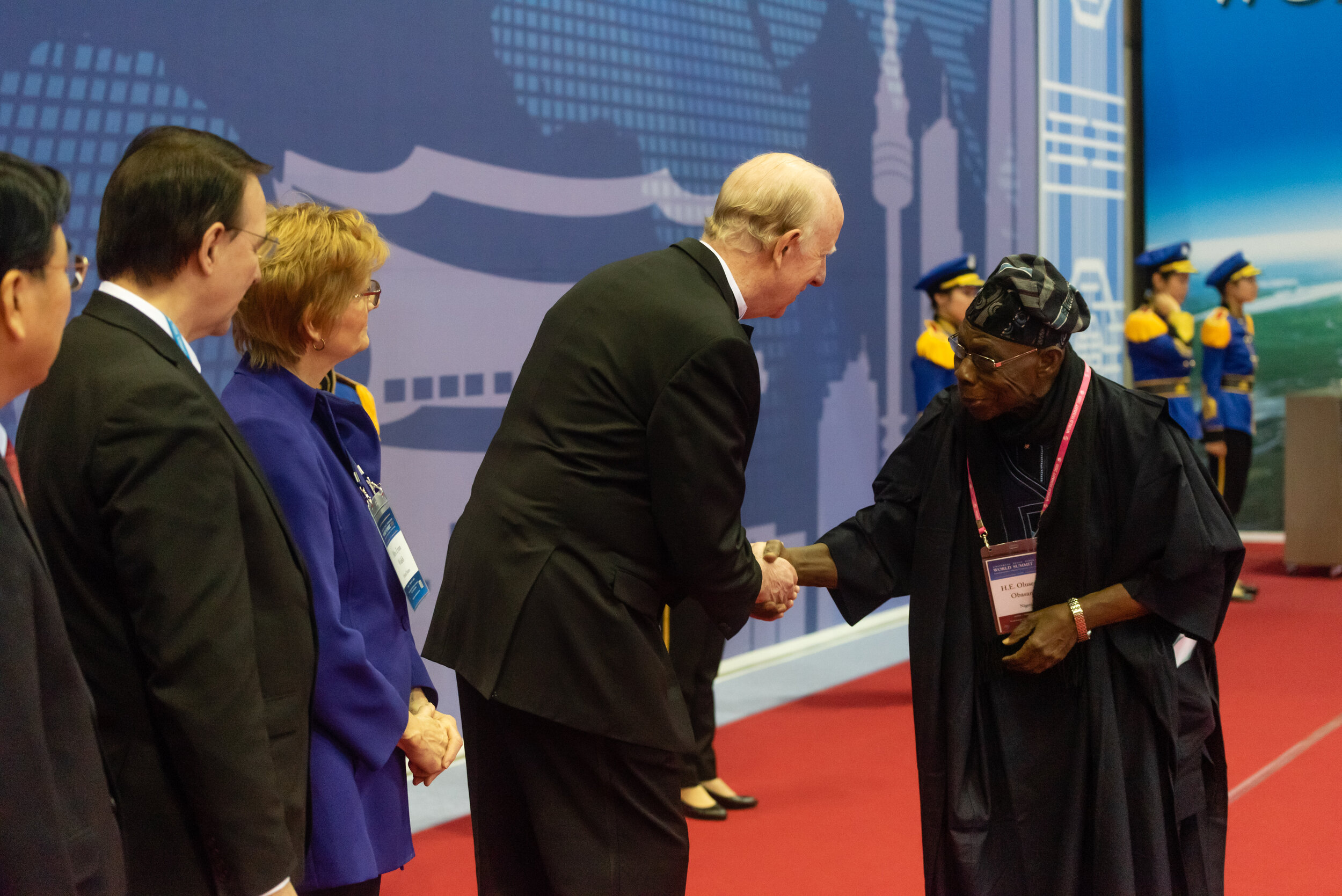
AMBASSADORS FOR PEACE
A global alliance of leaders aligned with core universal principles
Mission Statement
Ambassadors for Peace are part of a global network of leaders representing the religious, racial and ethnic diversity of the human family, as well as all disciplines of human endeavor. They stand on the common ground of shared principles and are committed to the path of promoting reconciliation, overcoming barriers, and building peace.
Benefits
Ambassadors for Peace appointment and award
Monthly exclusive e-newsletter
Networking nationally and internationally
Qualifications
Ambassadors for Peace have shown strong leadership qualities in their sphere of activity such as religion, politics, media, academia, business, the arts, and civil society. They also:
Affirm UPF’s vision and principles of peace
Exemplify the ideal of living for the sake of others
Transcend racial, national and religious barriers
Serve as members on national, regional and global peace councils promoting and safeguarding world peace
Support the work of UPF in one or more areas of focus listed below.
Do you know someone who should be appointed as an Ambassador for Peace?
Ambassador for Peace Five Principles for Peace
We are one family under God
The highest qualities of human beings are spiritual moral in nature
The family is the “school of love” and the cornerstone for world peace
By practicing the ethics of “living for the sake of others” we can reconcile the divided human family
Lasting peace cannot be achieved through political compromise alone but must involve a commitment to personal change
Ambassador for Peace Initiatives
Interfaith Peacebuilding:
Dialogue and Cooperation: Interfaith conferences and forums challenge people to identify aspects of their scriptures and traditions that can benefit all humanity while also affirming their religion’s identity. Interfaith dialogue encourages understanding, respect, and cooperation, recognizing that we are all members of one family under God.
Interfaith Councils: Peace is advanced when religious leaders bring the resources of heart and conscience to the tasks of conflict, resolution and peacebuilding. On local, national, and global levels, interfaith councils enable people of faith to contribute their wisdom and work effectively for peace alongside government, business and civil society.
Middle East Peace Initiative: Interfaith pilgrimages, consultations, and grassroots encounters in Israel and the Palestinian Territories build understanding and respect among Jews, Muslims, and Christians.
Peace and Security
Consultations & Symposia: In many parts of the world addressing security issues is a necessary step toward peace. UPF’s Office of Peace and Security brings decades of experience and expertise to peace initiatives in the Middle East, east Asia, South Asia, Africa, and the South Caucasus. Working with UPF’s Office of Embassy Relations, they hold symposia with diplomats, government officials, think tanks, academics, and international NGOs.
Religious Freedom: Human rights, including religious freedom, are secured not merely through laws but by raising awareness that we are one human family with a common spiritual and moral heritage.
Marriage and Family
Strengthening Marriages: Marriage, parenting, and the family are the foundations of human development and building blocks of society. Educational programs consider the personal and social benefits of marriage, promote a marriage-friendly culture, teach relationship skills, and encourage spiritual growth through relationships.
Character Development: The core of education is the cultivation of heart and character, which gives children a solid foundation for growth and development. UPF’s character education curriculum offers comprehensive moral education for students ages 6-18. Textbooks and teacher manuals feature stories about moral development and interactive exercises.
World Peace Blessing: Participants in World Peace Marriage Blessing ceremonies make a sacred promise of mutual love and faithfulness. International and interreligious couples pledge to bridge divides of culture, race, and religion for the sake of peace.
Culture of Peace
Humanitarian Service: In response to natural disasters, UPF provides donations and volunteers to help with immediate relief and longer-term cleanup. After the tsunami in Japan, youth cleaned debris from homes. When Thailand was struck by floods, volunteers brought food and water to stranded survivors and cleaned an Islamic school. Other recent projects aided people in Haiti, Pakistan, and India.
Religious Youth Service: Experiential learning programs bring together youth from different cultures and religions in order to promote mutual understanding and respect. Participants serve a community in need, visit religious and historic sites, and learn communication and team-building skills.
Sports for Peace: Young people from diverse backgrounds compete as teams in sports such as football. Coaches focus on respect and sportsmanship to promote personal development and community cohesion.
